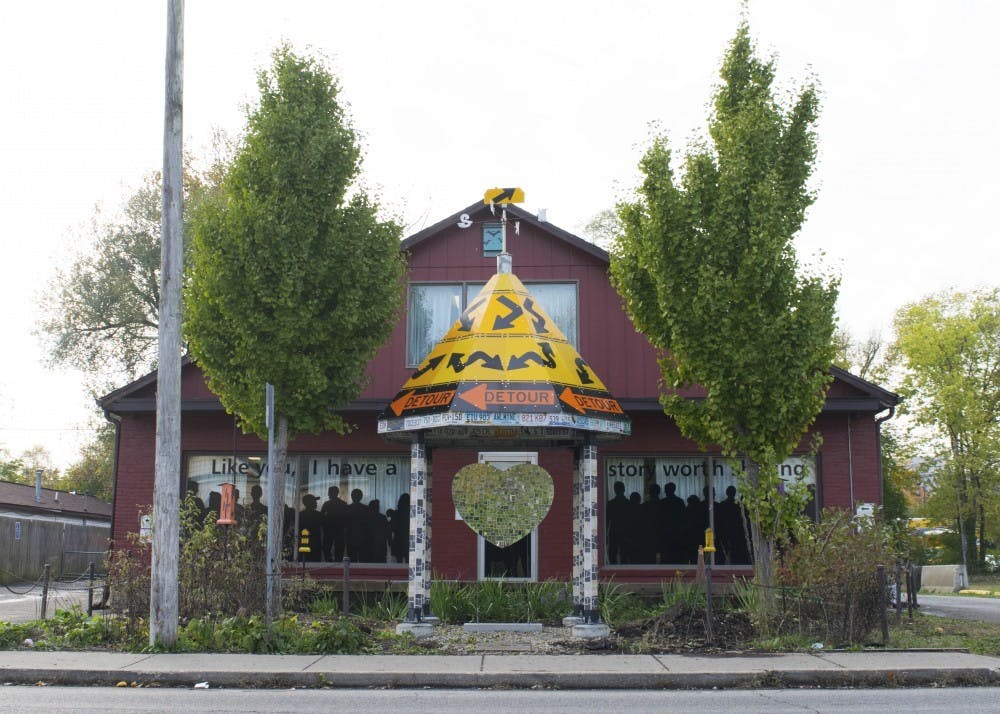The rapid spread of COVID-19 has shown that we are only as healthy as the most vulnerable in our society.The coronavirus will run rampant among people lacking shelter to self-quarantine and lacking running water to wash their hands.
All levels of government must act to not only address homelessness in this crisis but also to alleviate its root causes. This includes maintaining a local government’s authority to regulate renter protections. At the federal level this means creating a permanent paid sick leave program and expanding affordable housing.
Clearly homelessness is a growing problem in our state, and lawmakers can no longer choose to ignore it. With the outbreak of the coronavirus it is urgent that lawmakers find solutions to solve homelessness to avoid the virus spreading among people experiencing homelessness.
There are approximately 5,471 homeless people in Indiana, and 380 people in Monroe County, according to the U.S. Department of Housing and Urban Development. The number of single adults experiencing homelessness in Monroe County in 2019 increased by 13% from 2018.
State lawmakers have continued to chip away at tenants’ rights, perpetuating homelessness in Indiana. Senate Enrolled Act No. 148, which passed both chambers in early March, was vetoed by Gov. Eric Holcomb on Wednesday. The act would have prohibited any city or county from making regulations regarding landlord-tenant relationships.
SEA 148 would have overruled Indianapolis Mayor Joe Hogsett’s proposal that punishes Indianapolis landlords who evict tenants for seeking help from attorneys, code enforcement or health inspectors. Indiana is just one of few states without anti-retaliation laws that protect renters from negligent and predatory landlords.
Indianapolis also ranks second in the U.S. in evictions, behind New York City, according to a Princeton University study.
Hogsett’s proposal can reduce the number of unjust evictions and in turn prevent homelessness. It also protects public health by ensuring renters live in healthy conditions.
State lawmakers must stop subverting the authority of local officials to regulate landlord-tenant relationships. Local leaders know how to best protect tenants in their communities, not the Indiana Statehouse.
Although Holcomb has placed a moratorium on evictions, once the pandemic ends unemployed tenants will be searching for jobs in a sluggish economy and will still have bills to pay.
Since Holcomb ordered the temporary closing of non-essential businesses last week, there have been over 22,583 claims filed in Indiana for unemployment insurance. Ball State University economist Michael J. Hicks estimates that 500,000 jobs are at risk statewide due to necessary social distancing policies.
Even the most conservative lawmakers have realized that low-income workers should not jeopardize public health and go to work out of fear of losing their jobs, homes or the ability to pay their bills.
To mitigate the massive loss of income for the working class, President Donald Trump signed the Families First Coronavirus Response Act into law on March 18th that allocated money for paid sick leave for employees impacted by COVID-19.
The paid sick leave included in the bill is set to expire at the end of the year. However, many experts say that a vaccine will not be available until 18 months from now, which indicates that workers could still get sick and spread the coronavirus at work into the next year.
The federal government needs to establish permanent paid sick leave in order to ensure workers stay home and halt the spread of coronavirus, while not forcing people into homelessness.
In Bloomington, four Monroe County nonprofits, Shalom Community Center, Wheeler Mission, New Hope Family Shelter and Middle Way House, plan to open a shelter Monday for those experiencing homelessness who need to isolate themselves because of COVID-19.
Forrest Gilmore, executive director of Shalom Community Center, told the Indiana Daily Student that the center already partners with Community Kitchen to provide meals for people in need, and this project is going beyond the resources they already provide.
Instead of nonprofits rushing to develop band aid fixes to homelessness in order to slow the spread of coronavirus, the federal government should do more to ensure that every American can find affordable housing. This can be done through expanding housing vouchers to reduce rents for more low-income workers and investing in the construction of public housing developments.
COVID-19 has exposed how little of a safety net American workers have in times of economic crisis. Paid sick leave, making housing affordable and protecting tenants’ rights are just three of several measures local and federal leaders can pursue to end homelessness in this crisis and beyond.
Ian Nowlin (he/him) is a sophomore studying law and public policy. He has minors in Spanish and Arabic.






